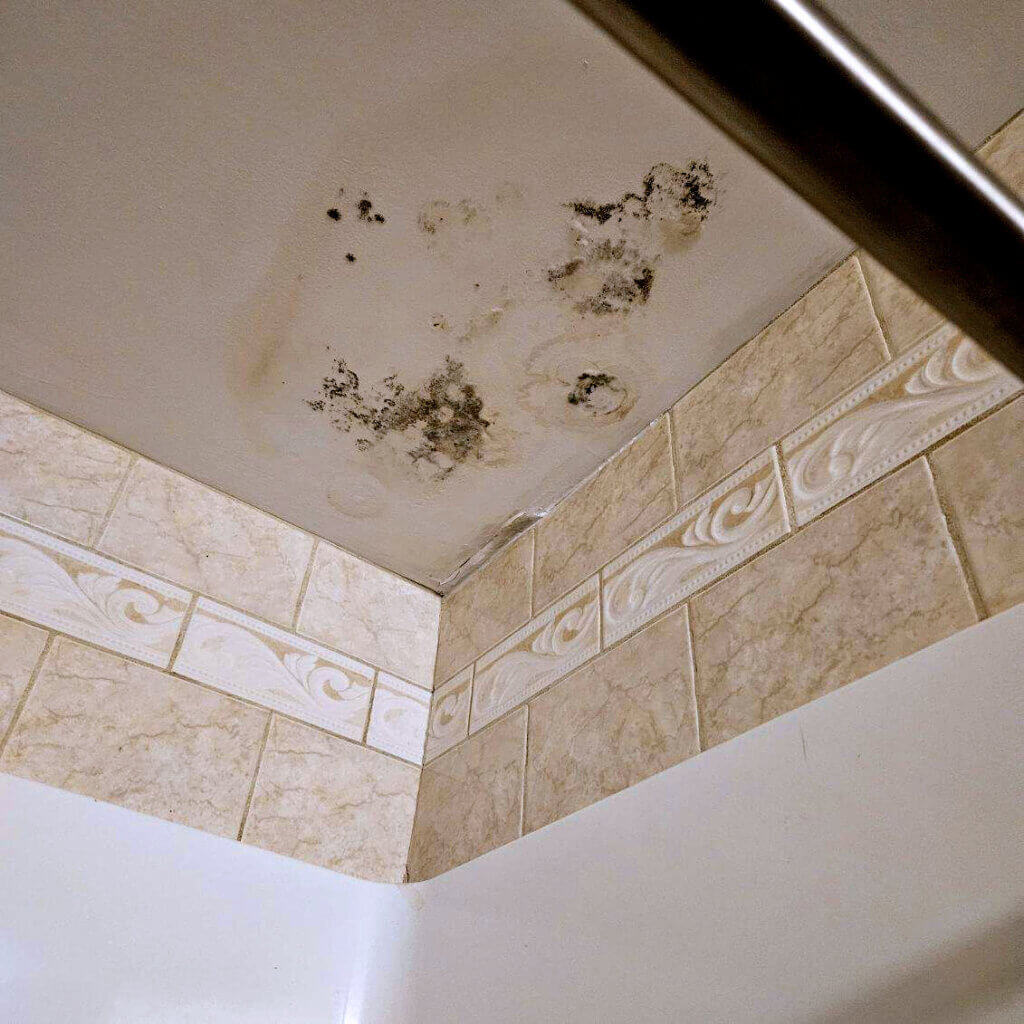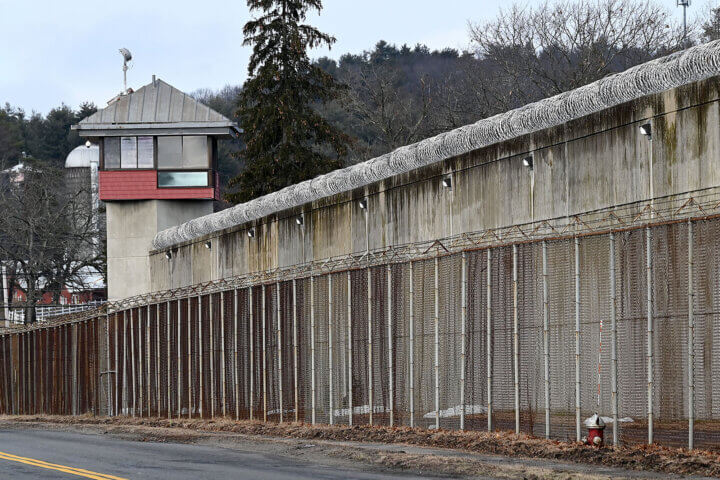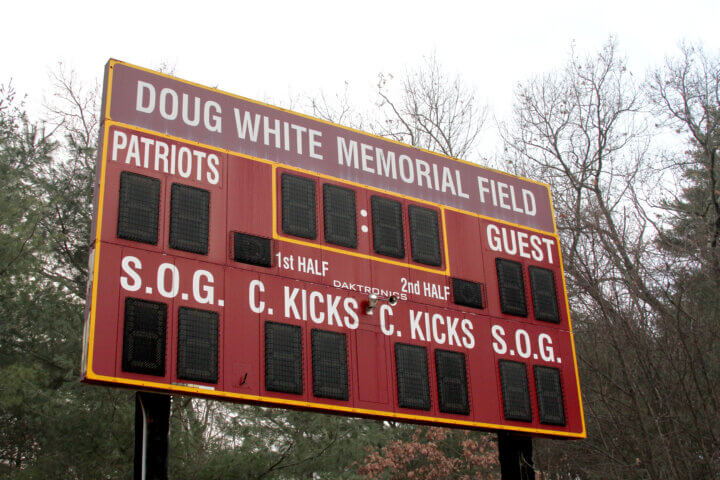By Dakota Antelman — Dakota@concordbridge.org
Cockroaches topped the list, but state inspectors also reported finding damaged sinks and toilets, peeling paint, and mildew when they visited the emergency shelter on Elm Street last month, a spokesperson said.
Three days after The Concord Bridge asked questions about cockroaches and septic backups at the former Best Western, inspectors confirmed the pest infestation and paused new family arrivals while addressing the problem.
Ashok Patel — an executive for the shelter’s landlord, Jamsan Hotel Management — said Jamsan was working with a pest control company.
Asked about the state inspection reports, Patel on November 20 told The Bridge the company had not heard of “any issues” related to mold, sinks, or other problems.
“We will conduct a detailed walk-through and check again as we do on a weekly basis,” he said.
The Bridge reported problems at the shelter in its November 22 edition. After that edition went to press, a state Executive Office of Housing and Livable Communities spokesperson clarified in an email that “other concerns” at the Elm Street facility “are minimal” and the decision to pause placements was “relative to the remediation of the [roach] infestation.”
The spokesperson said it is “standard procedure when we have to rehab a number of shelter units.”

Pest control reports from August and September show efforts to control cockroaches before state inspectors got involved. Workers detailed conditions in dozens of rooms.
In some cases, they found “clean” and “very clean” living spaces. In others, they documented “poor food storage,” “messy,” or “cluttered” units.
Pest control crews found live cockroaches or the remains of dead roaches in several “clean” rooms. Conversely, crews described some “messy” rooms where they did not document any roaches.
On September 10, three weeks after their August visit to the shelter, workers said they found “poor food storage” in a room they previously treated for bugs. “Cabinet and sink areas are wet with fruit flies,” workers said. “Bait from last visit is all moldy due to heavy humidity and moisture.”
The Bridge contacted multiple advocacy groups for comment on the living conditions for residents of the Concord shelter. None had responded by press time.
State Rep. Carmine Gentile (D-Sudbury) declined to comment. Though his district includes part of Concord, it does not include the Elm Street shelter itself.
State Sen. Michael Barrett (D-Lexington) did not immediately respond to a request for comment.
State Rep. Simon Cataldo (D-Concord) responded to issues at the shelter in a statement, saying “I’m glad that the Health Department identified these issues and communicated them to the state.”
“It’s my understanding from EOHLC that the Administration is working with the service provider to quickly address the concerns,” he said.
‘A lot of problems’
Though the infestation is the primary problem for state officials, the EOHLC spokesperson said inspectors found three instances of water stains and/or mildew during their November 14 walkthrough.
They found peeling paint in multiple rooms. Multiple sinks and toilets were leaky, discolored, or cracked.

Former shelter resident Roberta Bowman, who was transferred to other housing after reporting septic problems, said she saw mold in her room in Concord.
Bowman described cutbacks in the number of meals served to residents each day. She said this forced some shelter residents to prepare lunch in their rooms.
A current resident, who declined to give his name for fear of losing his spot at the shelter, said he also saw mold. He also said there had been a decrease in the number of meals served to residents.
“There’s a lot of problems here,” he said.
Discussing issues at the Elm Street building in an email on November 20, MOC vice president of programs Colby O’Brien told The Bridge, “We take the health and well-being of our families seriously.”
O’Brien said the Elm Street shelter is an “older building” that’s currently occupied to capacity. “While there are maintenance concerns due to normal wear and tear, we have already engaged with the hotel ownership to address them quickly,” he said.
“Our priority remains providing a safe and healthy environment for everyone at the shelter, and we are committed to resolving any issues promptly, including those raised by shelter families.”
O’Brien did not immediately respond to a follow-up question about food service cuts.
Previous mold concerns
The state signed a lease for the Elm Street shelter and hired MOC to run it in March 2023.
The building drew attention from the Concord Health Department in September after septic backups affected multiple rooms. The town Health Department also stepped in last month after receiving an anonymous complaint about cockroaches.

The EOHLC spokesperson said the state inspects its shelters at least once a year. Inspectors will return at the request of shelter residents or providers.
Before this month’s visit, the spokesperson said inspectors were last at the Elm Street site in June for mold concerns.
The spokesperson said inspectors found that the mold “was due to an air conditioner not being used.” Officials temporarily took two rooms offline. Those rooms were remediated as of November 15.
A roach expert told The Concord Bridge that mold and moisture may have compounded the cockroach problem. The insects “can follow the gradient of moisture up to a source,” said retired UMass Amherst biology professor Joseph Kunkel.
“If there’s any source of moisture, they’ll find it.”







